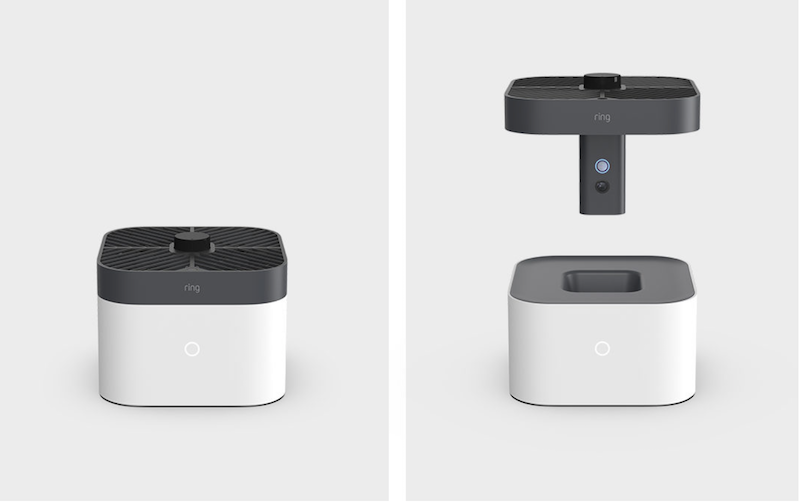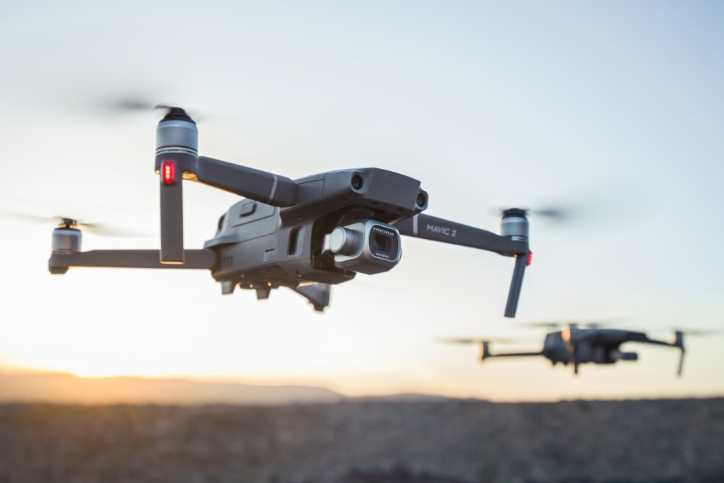Security News

Popular plane-tracking website Flight Radar 24 has been the victim of multiple DDoS attacks over the past few days - and though the site's operators haven't attributed blame, some have wondered if a regional conflict may have been the cause. Attacks on our systems continue and while we were able to bring services back for a short time, significant instability due to the sustained attacks has forced us to refocus our efforts to mitigate them.

Ring's newly announced robot drone - a connected device that flies around homes taking security footage - is causing privacy experts' concerns to take off. The new device has also sparked a firestorm of privacy concerns on Twitter about how Ring - whose connected doorbells have already created plenty of privacy controversies - will collect, use and share the collected data.

Last month, France-based cybersecurity company Synacktiv reported that it had found some potentially serious security issues in the DJI GO 4 Android app, which allows users to control and manage recreational drones made by DJI. Synacktiv, whose findings were validated by US-based cybersecurity firm GRIMM, reported discovering a "Forced update" mechanism that allowed the vendor to directly install an update or new software on a user's device without going through the checks required by Google Play. DJI responded to Synacktiv's findings and while it confirmed some of the vulnerabilities - the company said it released patches within a week of the report being published - it argued that the forced update mechanism is necessary to prevent users from installing hacked versions of its app in order to "Help ensure that our comprehensive airspace safety measures are applied consistently."

Cybersecurity researchers on Thursday revealed security issues in the Android app developed by Chinese drone-maker Da Jiang Innovations that comes with an auto-update mechanism that bypasses Google Play Store and could be used to install malicious applications and transmit sensitive personal information to DJI's servers. "Given the wide permissions required by DJI GO 4 - contacts, microphone, camera, location, storage, change network connectivity - the DJI or Weibo Chinese servers have almost full control over the user's phone."

Cybersecurity researchers on Thursday revealed security issues in the Android app developed by Chinese drone-maker Da Jiang Innovations that comes with an auto-update mechanism that bypasses Google Play Store and could be used to install malicious applications and transmit sensitive personal information to DJI's servers. "Given the wide permissions required by DJI GO 4 - contacts, microphone, camera, location, storage, change network connectivity - the DJI or Weibo Chinese servers have almost full control over the user's phone."

The privacy issues were discovered in the DJI GO 4 application, which is the complementary app used to control DJI drones. Researchers with Synacktiv found several concerning privacy issues,, which were then independently confirmed by researchers with GRIMM. "The DJI GO 4 application contains several suspicious features as well as a number of anti-analysis techniques, not found in other applications using the same SDKs," according to researchers with GRIMM, in a Thursday post.

Chinese drone giant Da Jiang Innovations on Thursday responded to the disclosure of security issues discovered by researchers in one of its Android applications. DJI has always denied these accusations and it has pointed to analysis conducted by the U.S. Department of Homeland Security and Booz Allen Hamilton, which shows that there is no evidence the company's government and professional drones send user data to DJI, China or other third parties.

Researchers at Ben-Gurion University of the Negev have determined how to pinpoint the location of a drone operator who may be operating maliciously or harmfully near airports or protected airspace by analyzing the flight path of the drone. "Currently, drone operators are located using RF techniques and require sensors around the flight area which can then be triangulated," says lead researcher Eliyahu Mashhadi, a BGU computer science student.

Samsung Electronics announced a successful demonstration of its new drone-based antenna configuration measurement solution for 4G and 5G networks in the company's campus. The deep learning-based artificial intelligence solution instantly verified the rotation and tilt of the antennas, so that the engineers could determine if the antennas were installed correctly at predefined optimal angles.

Following weeks of heated protests in American cities - and criticism of law enforcement's use of force, surveillance, and drone aircraft in the skies above - the US government has belatedly asked the public what it thinks. The US Department of Homeland Security wants your comments on the use of drones by police and other first responders by July 9.